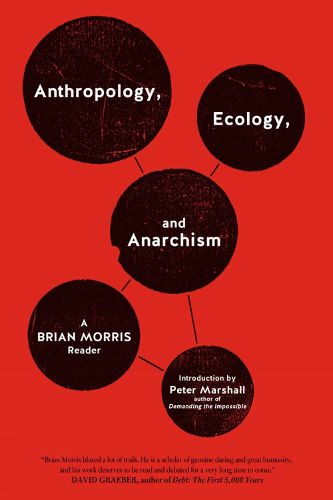Readings Newsletter
Become a Readings Member to make your shopping experience even easier.
Sign in or sign up for free!
You’re not far away from qualifying for FREE standard shipping within Australia
You’ve qualified for FREE standard shipping within Australia
The cart is loading…






Over the course of a long career, Brian Morris has created an impressive body of engaging and insightful writings-from social anthropology and ethnography to politics, history, and philosophy-that have made these subjects accessible to the layperson without sacrificing analytical rigor. But until now, the essays collected here, originally published in obscure journals and political magazines, have been largely unavailable to the broad readership to which they are so naturally suited. The opposite of arcane, specialized writing, Morris’s work takes an interdisciplinary approach that moves seamlessly among topics, offering up coherent and practical connections between his various scholarly interests and his deeply held commitment to anarchist politics and thought.
Approached in this way, anthropology and ecology are largely untapped veins whose relevance for anarchism and other traditions of social thought have only recently begun to be explored and debated. But there is a long history of anarchist writers drawing upon works in those related fields. Morris’s essays both explore past connections and suggest ways that broad currents of anarchist thought will have new and ever-emerging relevance for anthropology and many other ways of understanding social relationships. His writings avoid the constraints of dogma and reach across an impressive array of topics to give readers a lucid orientation within these traditions and point to new ways to confront common challenges.
$9.00 standard shipping within Australia
FREE standard shipping within Australia for orders over $100.00
Express & International shipping calculated at checkout
Over the course of a long career, Brian Morris has created an impressive body of engaging and insightful writings-from social anthropology and ethnography to politics, history, and philosophy-that have made these subjects accessible to the layperson without sacrificing analytical rigor. But until now, the essays collected here, originally published in obscure journals and political magazines, have been largely unavailable to the broad readership to which they are so naturally suited. The opposite of arcane, specialized writing, Morris’s work takes an interdisciplinary approach that moves seamlessly among topics, offering up coherent and practical connections between his various scholarly interests and his deeply held commitment to anarchist politics and thought.
Approached in this way, anthropology and ecology are largely untapped veins whose relevance for anarchism and other traditions of social thought have only recently begun to be explored and debated. But there is a long history of anarchist writers drawing upon works in those related fields. Morris’s essays both explore past connections and suggest ways that broad currents of anarchist thought will have new and ever-emerging relevance for anthropology and many other ways of understanding social relationships. His writings avoid the constraints of dogma and reach across an impressive array of topics to give readers a lucid orientation within these traditions and point to new ways to confront common challenges.